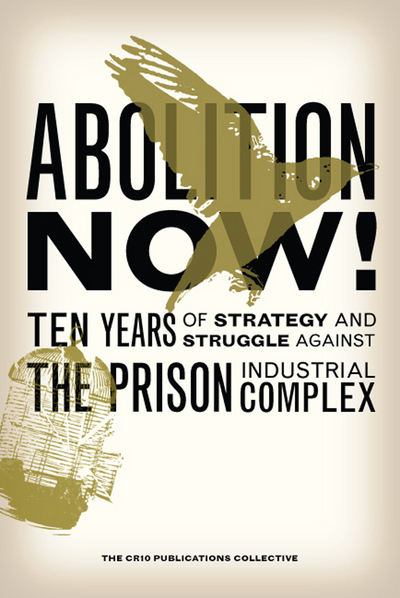Feminist Review on Abolition Now!
 The nice folks at Feminist Review recently reviewed AK’s Abolition Now! Ten Years of Strategy and Struggle Against the Prison Industrial Complex. They’ve actually reviewed quite a few AK titles over time…but that’s not why you should check out their site. You should check it out because they’re a collective of ten editors and 200 writers who review books, music, DVDs, and more from, as they put it, “feminist perspectives to explore the world through an anti-oppression lens.”
The nice folks at Feminist Review recently reviewed AK’s Abolition Now! Ten Years of Strategy and Struggle Against the Prison Industrial Complex. They’ve actually reviewed quite a few AK titles over time…but that’s not why you should check out their site. You should check it out because they’re a collective of ten editors and 200 writers who review books, music, DVDs, and more from, as they put it, “feminist perspectives to explore the world through an anti-oppression lens.”
* * *
For those of us who did not make it to Critical Resistance’s tenth anniversary conference, Abolition Now! is one way to bring the discourse and vision of Critical Resistance to our own lives and work. The anthology includes nineteen pieces broken into three sections: Dismantle, Change, and Build. The pieces vary from interviews with organizers and analysis from scholar-activists, to poems and reflections on current movements and state of the prison-industrial complex (PIC). The selections highlight many important debates and dilemmas within movements for prison abolition and lay out different strategies and visions.
There isn’t a weak piece in the collection, although every reader will surely take away something different. I thought that Ofelia Ortiz Cuevas’ “COPS and the Visual Economy of Punishment” was particularly interesting, and an aspect of the workings of the PIC that is often ignored. She argues that punishment and criminalization of black and brown bodies is normalized in television shows like COPS and other media. Although she does not argue it, the implications of her argument should lead organizers to pay attention to culture as an important site of struggle, and strategize ways of taking power in the media to de-normalize and reveal these processes.
I also thought that Martha Escobar’s piece, “No One is Criminal” was an important addition, calling attention to the ways that immigrant rights movements have also contributed to the criminalization of black people. There is a tendency among the progressive left to overlook the shortcomings of other progressive movements because of “good intentions.” Escobar does not fall into this trap, and strengthens both movements by calling attention to these consequences.
While each piece has its own value, the several pieces on the struggles of current organizations in particular places, such as the Canadian Association of Elizabeth Frye Societies, the LEAD Project in Los Angeles, and UBUNTU in Durham, North Carolina are extremely valuable in grounding the book in the lived work and experience of organizers (incarcerated and not), and the visions emerging form their work. All in all, the anthology serves an important purpose in cataloging the ideas and experience of a range of organizers and scholar-activists to share with the wider movement against the prison-industrial complex.
Review by Katrina Forman
